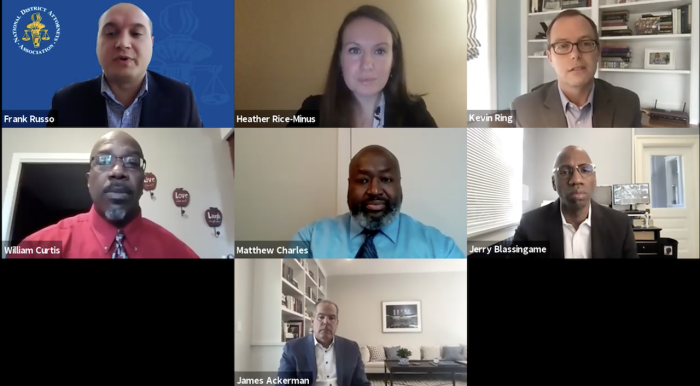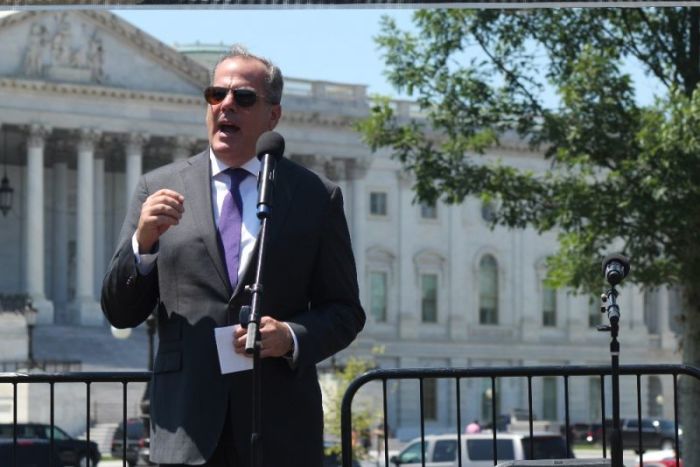Prison Fellowship backs Democrat-led bill to end cocaine sentencing disparity impacting black Americans

The world's largest evangelical prison ministry organization has voiced support for a Democrat-sponsored bill that could eliminate the sentencing disparity between crack cocaine and cocaine powder in federal sentencing laws that disproportionately affect black Americans.
In a reporter's roundtable on Tuesday, Prison Fellowship partnered with Families Against Mandatory Minimums to discuss the difference between how crack and powdered cocaine are punished in the criminal justice system.
During the event, reporters heard from individuals who have suffered from this disparity and advocate for how the Equal Act could rectify the problem.
Sens. Cory Booker, D-N.J., and Dick Durbin, D-Ill., introduced the Equal Act, which would ultimately eliminate the federal crack and powder cocaine sentencing disparity and apply it retroactively to those already convicted.
The elimination of this disparity was a priority in President Joe Biden’s campaign platform on criminal justice.
The Anti-Drug Abuse Act of 1986 led to a criminal justice disparity in crack and powder cocaine sentencing, even though the two drugs are nearly identical.
Under this law, someone who distributed five grams of crack cocaine would serve the same five-year prison sentence as a person distributing 500 grams of powder cocaine, which is a 100:1 disparity.
The Fair Sentencing Act passed in 2010 decreased the sentencing disparity from 100:1 to 18:1.
Despite the change in 2010, the disparity still exists and especially affects black men since crack cocaine is more prevalent in minority communities. According to a statement from Durbin, 81% of those convicted of crack offenses between 2015 to 2019 were black.
The organizations co-launched the #EndtheDisparity campaign in January and are advocating for the 117th Congress to eliminate the crack-powder disparity.
Prison Fellowship President and CEO James Ackerman began the panel by saying action is needed to correct the “longstanding injustice” of crack cocaine disparities.
“God has no tolerance for disparity for dishonest scales, whether it’s in the marketplace or the justice system,” Ackerman said, referencing Proverbs 11:1.
“We have seen the impact that injustice has had on communities. We believe as Christians that we are to act to correct injustices."

Panelists included Ackerman, Prison Fellowship Senior Vice President of Advocacy & Church Mobilization, Heather Rice-Minus, and FAMM President Kevin Ring.
Matthew Charles, one of the first prisoners released under the bipartisan FIRST STEP Act passed in 2018, and William Curtis, a prisoner given a 327-month sentence for the distribution and possession of crack cocaine, also spoke during the event.
Charles shared some of his experiences while incarcerated and his life after his release. He was sentenced to 35 years in prison for non-violent drug possession and was released after 22 years since the act was retroactive.
“[This disparity] is something we can look at judicially and say, ‘This still should not be.’ If we want to find an adjustment that’s based on a racial disparity in a criminal justice system that has an ill-effect, with no real reason for being there, we can just turn to the ratio between these two drug types and yes, even at 18:1,” Charles said.
Curtis agreed that his crime should have been punished, but the extent of his 327-month sentence did not match the measure of his crime, especially when the sentence for cocaine powder distribution would have been remarkably less.
“There is no rhyme or reason for it, whether I was selling crack or whether somebody was selling cocaine,” Curtis said. “We were all dealing an addiction, dealing in a destruction of families, the destruction of men and women. … We all deserved to be punished. But should all be punished equally.”
He added that the unequal 100:1 ratio for crack cocaine sentencing caused him to miss being a father to his children.
“I encourage this disparity to be changed,” Curtis shared. “Had I not been sentenced under this 100:1 ratio, I would have gone home a long time ago. …. I would have been there to raise my children who are now grown.”
Other speakers included Frank Russo of the National District Attorneys Association and Jerry Blassingame, a South Carolina pastor and executive director of Soteria Community Development Corporation.
Blassingame, a pastor who leads a reentry program, said the system needs an overhaul and the black community is experiencing a “fatherless generation” due to disparities.
FAMM President Kevin Ring said it is important to remember the numbers involved in the justice system are more than statistics; they represent human lives. He said reform for the crack cocaine disparity is long overdue.
“It took too long to fix it. I’m glad we did, but we haven’t fixed it all the way, and this is what this is all about," Ring said. “This change is overdue.”
Frank Russo, director of government and legislative affairs at the National District Attorneys Association, said the disparity is both a moral issue but a common-sense issue.
“Now more than ever … it is crucial that prosecutors and law enforcement are not just bystanders in efforts like this,” Russo said. “We need to be role leaders and show that our criminal justice system is equitable and provides those meaningful second chances to improve not only the lives of incarcerated individuals but those in those communities that they’re returning to … to end the cycle of crime.”
Similar bipartisan legislation regarding the crack cocaine disparity is set to be soon proposed in the House of Representatives.





























